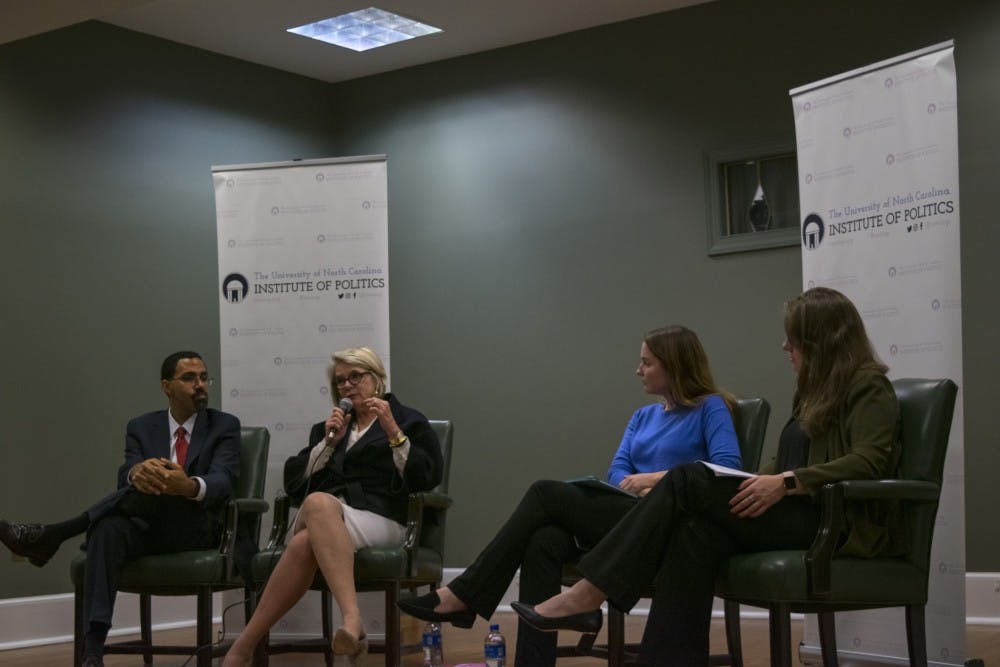Students, academics, community members and political practitioners gathered in Wilson Library’s Pleasants Family Assembly Room Saturday to discuss the current state and the future of education policy in North Carolina.
Every semester, UNC’s Institute of Politics hosts a series of seminars on a variety of topics through its Fellows Program. Each fellow has the liberty to choose that week’s seminar topic and then invite guests for discussion. This semester’s fellows are former U.S. Secretary of Education to President George W. Bush and UNC System President Margaret Spellings and N.C.Attorney General Josh Stein.
Spellings led last week’s panel discussion along with John King, former secretary of education to President Barack Obama.
Lucy Russell, junior and president of the IOP student advisory board, said the seminars provide a forum for open communication and maintaining an ideological balance is a crucial aspect of the Fellows Program.
“We want (the seminars) to be more intimate environments for students to engage in these conversations,” Russell said. “We can promote discourse about some of the most pressing political issues we’re facing.”
Last week’s seminar led the kickoff to the IOP’s weekend-long Civic Ideas Summit, entitled “Disagreement is the Lifeblood of Democracy: Facilitating Civil Discourse on Campus.”
Bipartisanship remained a large focus of the panel’s discussion, which also included topics of both higher education and K-12 policies, as well as voting issues surrounding education.
“I think it’s important for all communities to view education as an important issue,” King said. “As students are voters, as they’re citizens, they should know those issues.”
King also emphasized the importance of putting pressure on policymakers to be more “equity-minded.” Although King cited Spelling’s work on the No Child Left Behind Act and access to broken-down data as progress within education policy, he said there are still “huge gaps in attainment” for low-income students, students of color, English learners and students with disabilities.



